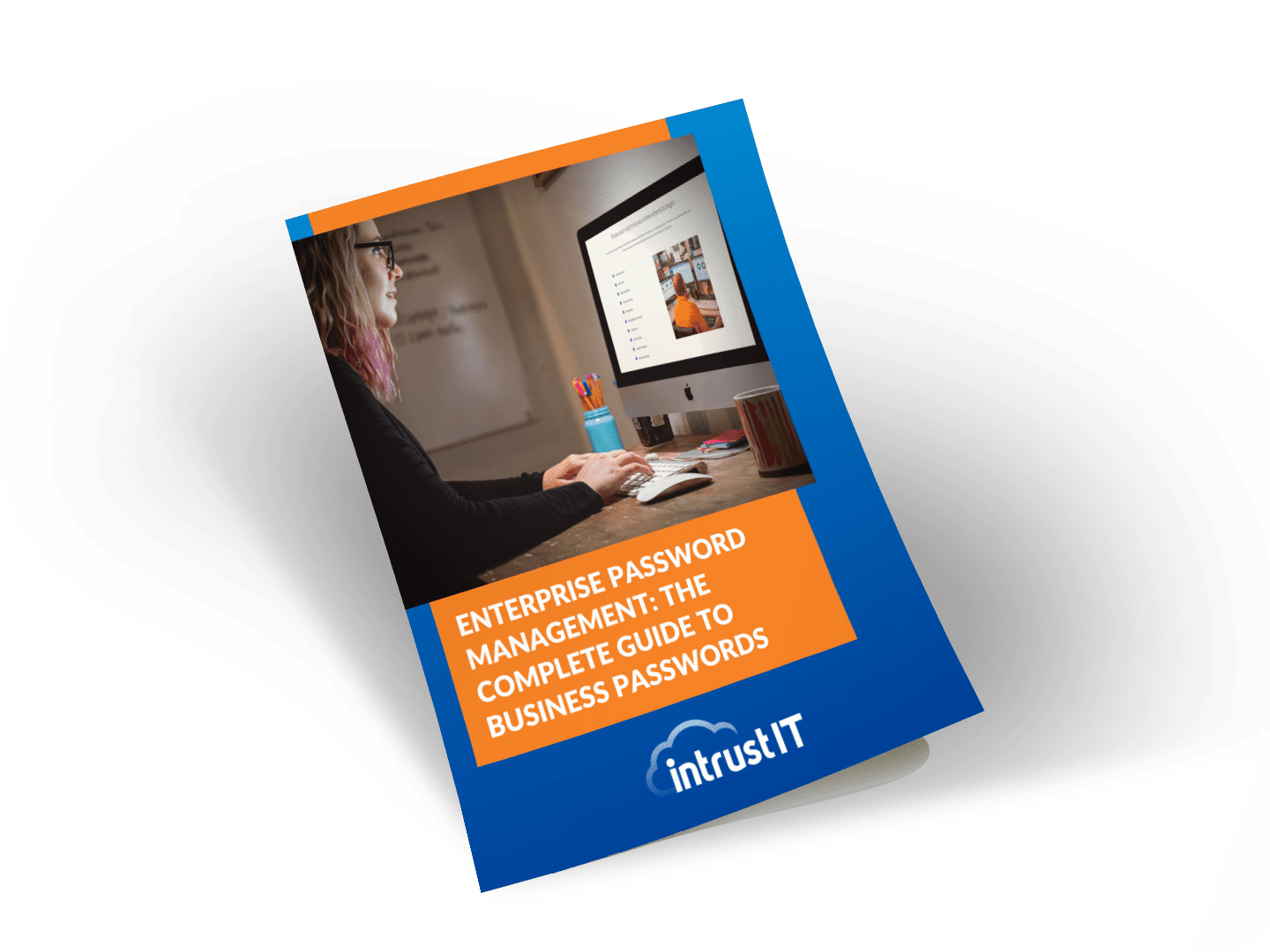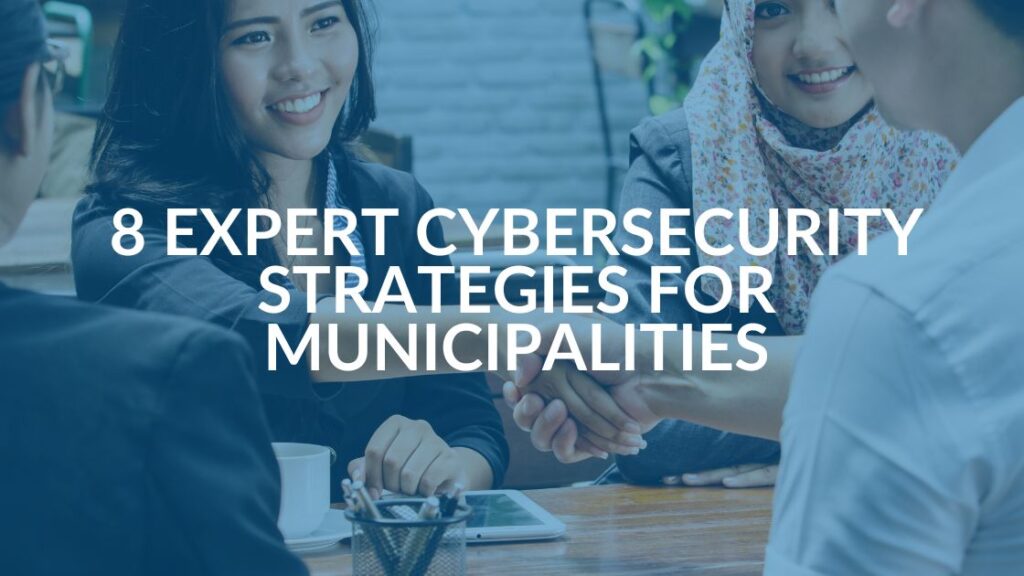Securing Our Cities: Cybersecurity Protection for Local Governments

As a city or municipality manager, you understand that the security of your community extends far beyond physical borders. With the rise of cyber threats targeting local governments, it’s crucial now more than ever to implement robust cybersecurity measures to safeguard sensitive data, critical infrastructure and citizen privacy.
As an expert managed service provider, we understand the challenges associated with effective cybersecurity protection for local governments.
In this blog post, we explore essential cybersecurity practices for local governments, most of which are completely free.
Enable Multi-Factor Authentication (MFA)
One of the simplest yet most effective ways to bolster your cybersecurity defenses is by enabling multi-factor authentication (MFA). MFA adds an extra layer of protection by requiring users to provide multiple forms of verification before accessing accounts or systems.
Incorporating factors such as passwords, biometrics or security tokens significantly reduces the risk of unauthorized access, even in the event of password compromise.
Password Hygiene and Password Management
Want to avoid password compromise in the first place? Weak passwords that are easily compromised remain cybercriminals’ primary entry method.
If you want to learn more about crafting strong passwords and what weak passwords look like, check out our free password management guide.
Remembering strong, complex passwords for multiple accounts can be difficult for the average person. That’s where password managers like 1Password (the password manager we recommend) come into play.
With 1Password, local government employees can generate, store and autofill strong, unique passwords for each account, eliminating the need to memorize them. This not only enhances security but also streamlines access management across departments.
Automate Your Software Updates
Software vulnerabilities are a common entry point for cyber attackers. To mitigate this risk, it’s essential to stay vigilant with software updates and patches.
Automating the update process ensures that systems are promptly patched against known vulnerabilities, reducing the window of opportunity for exploitation.
Endpoint Protection
Does your municipality have a BYOD (bring your own device) policy? If so, what steps are you taking to secure those devices?
Endpoints, including desktops, laptops and mobile devices, are prime targets for cyber attacks. Endpoint protection solutions provide defense mechanisms such as antivirus, anti-malware and intrusion detection to safeguard these devices against malicious activities.
Implementing robust endpoint protection is critical for maintaining the integrity and security of government networks. And, if you’re unsure how to secure your endpoints, reach out to a trusted IT support provider.
Firewall
Firewalls act as gatekeepers between internal networks and the internet, filtering incoming and outgoing traffic based on predefined security rules. Local governments can regulate traffic flow and prevent unauthorized access to sensitive data by deploying firewalls at network perimeters and within internal segments.
Configuring firewalls to restrict access to unnecessary services and implementing intrusion prevention features further enhances network security.
Encryption
Encrypting sensitive data is essential for protecting it from unauthorized access, both in transit and at rest. Windows users can leverage built-in encryption tools like BitLocker to encrypt hard drives and removable storage devices.
Encryption ensures that even if data is intercepted or stolen, it remains unintelligible to unauthorized parties.
Backing Up Your Data With the 3-2-1 Rule
Data loss can severely affect local governments, ranging from operational disruptions to compliance violations. The 3-2-1 backup rule provides a comprehensive strategy for data protection.
So, what’s involved in the 3-2-1 backup rule?
You should maintain three copies of data, stored on two different media types, with one copy stored offsite or in the cloud. By regularly backing up critical data, local governments can minimize the impact of potential cyber incidents and ensure business continuity.
Use a VPN
Virtual private networks (VPNs) are essential for securing communications over untrusted networks, especially when it comes to remote work at home, in hotels and at coffee shops with unsecured Wi-Fi.
VPNs encrypt network traffic, preventing eavesdropping and unauthorized interception. Requiring remote employees to connect via VPNs lets local governments establish secure communication channels and protect sensitive information from prying eyes.
Zero Trust Security Policies
Traditional perimeter-based security models aren’t an option anymore. Zero Trust Security takes a more holistic approach by assuming that all network traffic, both internal and external, is untrusted.
Implementing granular access controls, using continuous monitoring and user authentication serves as cybersecurity protection for local governments to mitigate the risk of insider threats and external attacks.
Cyber Insurance
Despite robust cybersecurity measures, no organization is immune to cyber threats. Cyber insurance provides financial protection against the costs associated with data breaches, ransomware attacks and other cyber incidents.
Investing in cyber insurance policies can mitigate financial losses and expedite recovery efforts in the event of a cyber incident.
Evaluating Your Vendors
So, you’ve learned all about cybersecurity protection for local governments, but what about your vendors? Third-party vendors play a significant role in the operations of local governments, providing essential services and solutions.
However, entrusting sensitive data to external vendors introduces inherent risks. Conducting thorough vulnerability assessments and due diligence when selecting vendors is critical to ensuring they adhere to rigorous cybersecurity standards.
The bottom line? Holding vendors accountable for maintaining robust security practices can minimize the risk of supply chain vulnerabilities.
Implementing Cybersecurity Protection for Local Governments: Next Steps
Safeguarding our communities against cyber threats requires a proactive and multi-faceted approach to cybersecurity. At Intrust IT, we’re committed to supporting municipalities with all kinds of cybersecurity initiatives.
Contact us or book a meeting if you have any other questions about cybersecurity protection for local governments, or implementing the security measures we discussed in the blog post.
Share this Blog

Is Your Name or Birthday a Part of Your Password?
If so, you’re a part of the 59 percent of people who don’t follow proper password hygiene. More than 70 percent of passwords are used for more than one system, meaning if cybercriminals crack one, they can access a lot more accounts.
Our free Enterprise Password Management Guide will give you the best password hygiene practices to help you secure your computer and your business.
Download the Guide
Explore the Latest Trends in IT

Securing Our Cities: Cybersecurity Protection for Local Governments

Manufacturing and IoT: Securing Connected Devices

Small Business Cyber Security Toolkit: The Tools You Need to Stay Protected




